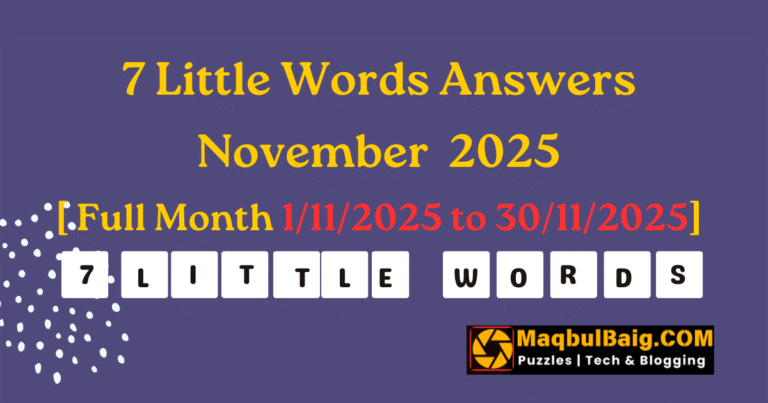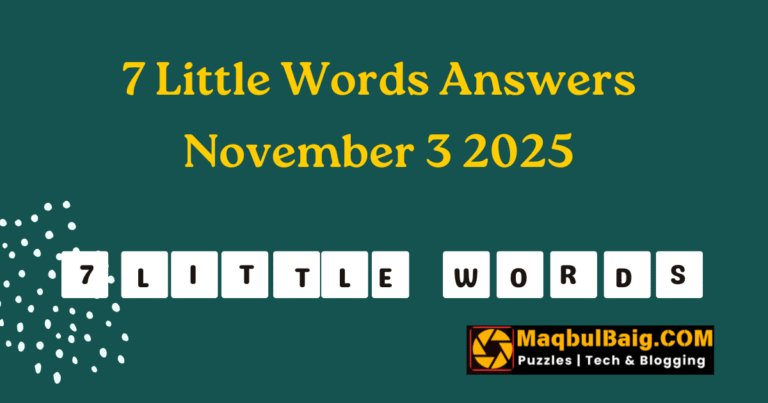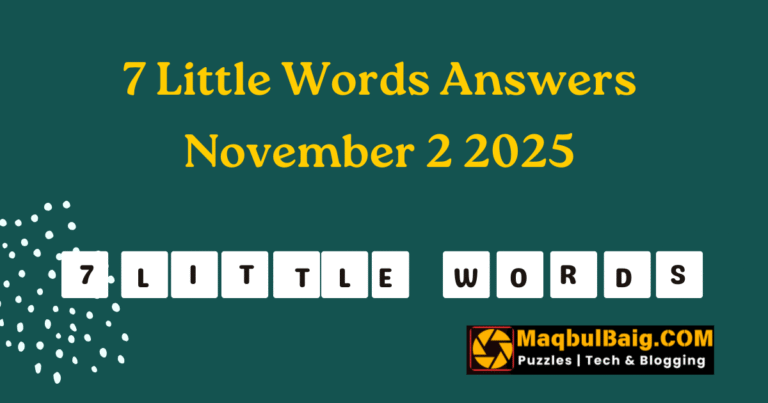
Puzzles have been one of the best ways to exercise the brain and improve problem solving skills. Whether you play them online or on paper, puzzles help you stay mentally sharp, boost memory. Among the many types of puzzles available today, logic puzzles and word puzzles are the most popular categories. Though they might look similar at first glance, they actually test very different skills and thought processes.
What Are Logic Puzzles?
Logic puzzles are brain games that require you to use reasoning and analytical thinking to find the correct answer. These puzzles focus on patterns, sequences, numbers, and relationships between different pieces of information.
To solve a logic puzzle, you usually don’t need prior knowledge or language skills just the ability to think critically and apply logic.
Examples of Logic Puzzles:
Sudoku: Fill a grid with numbers 1 to 9 so that no number repeats in any row, column, or 3×3 box.
Nonograms (Picross): Use number clues to fill or leave blank squares to reveal a hidden picture.
Logic Grid Puzzles: You get a story with clues (for example, “Sarah lives next to the person with a cat”), and you must determine the correct relationships.
Pattern puzzles: Identify what comes next in a sequence based on given logic.
Skills Developed by Logic Puzzles:
-
Logical reasoning
-
Critical thinking
-
Mathematical ability
-
Pattern recognition
-
Decision-making under constraints
What Are Word Puzzles?
Word puzzles are language based games that test your vocabulary, spelling, and linguistic ability. These puzzles rely on your understanding of words, their meanings, and how letters or phrases fit together.
Word puzzles are great for improving language skills and are often used in education to make learning fun.
Examples of Word Puzzles:
Crossword Puzzles: Clues lead you to fill in words across and down a grid.
Word Search: You have to find hidden words in a grid filled with random letters.
Anagrams: Rearrange the letters of a word to form another word (e.g., “listen” → “silent”).
Scrabble and Boggle: Create words from a set of letters to earn points.
Hangman: Guess the hidden word by suggesting letters before running out of attempts.
Skills Developed by Word Puzzles:
-
Vocabulary and spelling
-
Word association and comprehension
-
Problem solving through clues
-
Memory improvement
-
Enhanced focus and patience
Key Differences Between Logic Puzzles and Word Puzzles
| Feature | Logic Puzzles | Word Puzzles |
| Primary Focus | Logical reasoning and analysis | Vocabulary and language skills |
| Knowledge Required | General reasoning skills | Knowledge of words and meanings |
| Examples | Sudoku, logic grid, number series | Crosswords, word search, anagrams |
| Type of Thinking | Abstract and analytical | Linguistic and creative |
| Goal | Find a logical solution | Form or identify correct words |
| Best For | Improving logic and problem solving | Enhancing language and vocabulary |
| Difficulty Level | Based on logical complexity | Based on word familiarity |
How Logic Puzzles Work
Logic puzzles usually present a scenario or pattern that must be decoded using clues. There is often only one correct answer, and reaching it involves careful deduction.
Example of Logical Puzzle:-
1. John does not live in the red house.
2. The person in the green house owns a cat.
3. The person with the blue house drinks coffee.
Using these clues, you fill a chart and systematically eliminate impossible options until you reach the right conclusion.
This type of puzzle improves your ability to reason step by step and strengthens your cognitive control.
How Word Puzzles Work
Word puzzles, on the other hand, depend on your familiarity with language. You might be given a set of clues, mixed up letters, or hidden words. Solving them often requires both logic and creativity.
Example
Opposite of cold (4 letters)
You immediately think of possible words and fill in “WARM.”
Some word puzzles, like Scrabble, also include a strategic element, where you choose where to place your words for maximum points.
Benefits of Solving Logic and Word Puzzles
Both types of puzzles offer mental and emotional benefits. Here is how they differ and complement each other:
Cognitive Development
Logic puzzles enhance critical thinking and reasoning. Word puzzles develop linguistic intelligence. Doing both keeps your brain balanced and versatile.
Educational Value
Teachers use word puzzles to improve spelling and vocabulary, while logic puzzles are great tools for teaching problem solving and mathematics.
Improved Concentration
Both require sustained attention, helping you build focus and patience valuable in both studies and work.
Which Puzzle Type Is Better for You?
Choosing between logic puzzles and word puzzles depends on your personal goals and interests.
If you enjoy solving mysteries, finding hidden patterns, and testing your reasoning logic puzzles are perfect for you.
If you love words, language, and creative expression word puzzles are your best choice.
For the best brain workout, try mixing both types, That way, you will train both sides of your brain logical and creative.
Popular Online Puzzle Games
With the rise of mobile apps and online platforms, you can easily find thousands of logic and word puzzles to play anywhere.
Best Logic Puzzle Games:
- Sudoku.com
- Brain Test
- Logic Master
- Flow Free
Best Word Puzzle Games:
- Wordscapes
- Word Connect
- Crossword Jam
- Scrabble Go
These apps not only entertain but also help improve your mental agility.




